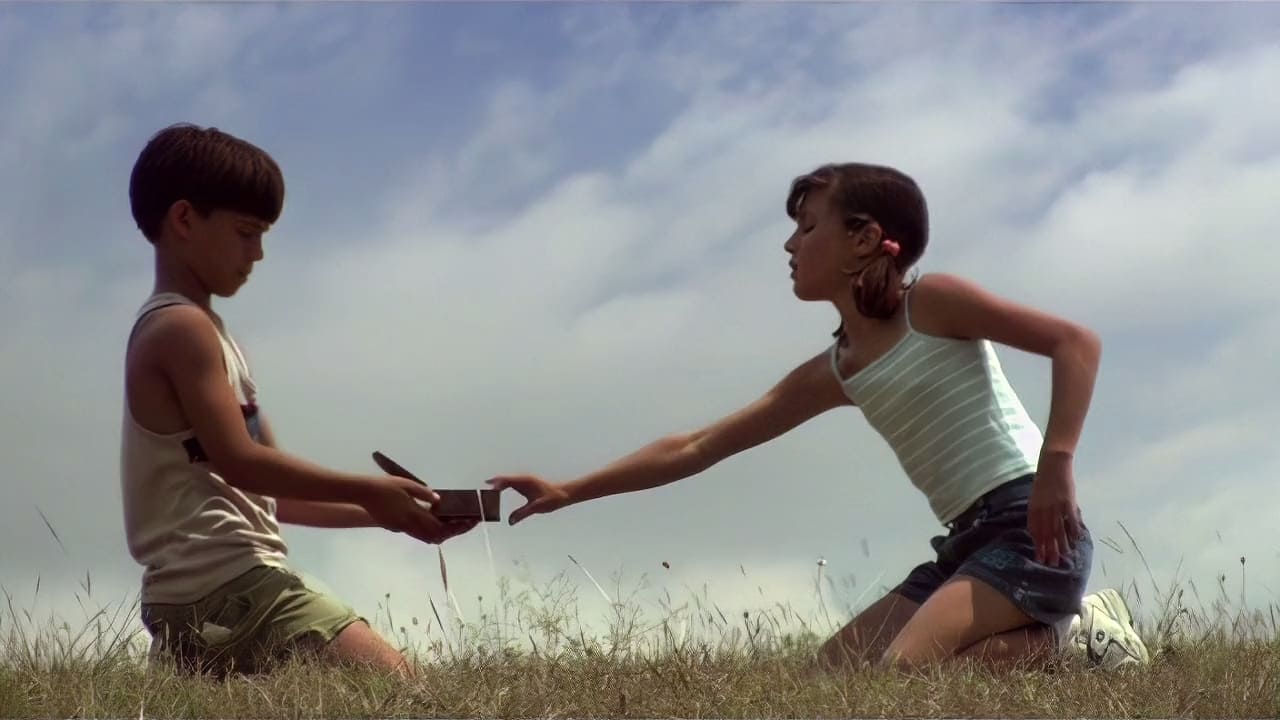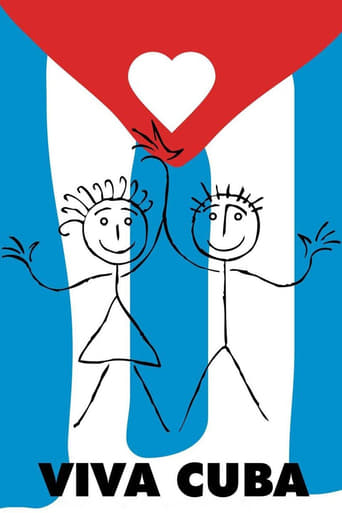LastingAware
The greatest movie ever!
Nonureva
Really Surprised!
Curapedi
I cannot think of one single thing that I would change about this film. The acting is incomparable, the directing deft, and the writing poignantly brilliant.
Stephanie
There is, somehow, an interesting story here, as well as some good acting. There are also some good scenes
d_in_chi
By title, and by the knowledge of where this movie was produced, many who watch movies might be turned off, or suspect of the film's quality at best. The first Cuban film I've seen, I went in with expectations that were shattered by a, dare I say, cute and heartwarming tale of friendship and the human spirit. I know that people are people no matter where they live, and a liberal at heart. Even for me, this is the last place I would have expected to look for such a story, and one of the last things I would expect to result in a few tears.Immediately, the story disarms us of political prejudice, with a scene of boys, including Jorgito, one of two protagonists, playing the Cuban version of Cowboys and Indians in the street. They happen upon a girl of the same age, Malu, and we see Jorgito and Malu having the first of their several arguments, those reminiscent of old married couples. Malu wants to play Queen of Spain to which Jorgito objects, setting up the dichotomous relationship we learn of with their families, and I would assume countless more in Cuba.Jorgito's and Malu's relationship is shown developing throughout the first act, something between childish/flirty teasing and puppy love. Antagonism is introduced when Malu's mother plans to marry and leave the country, resulting in one of the most touching scenes in any movie, let alone one for children, with both children sitting on a roof overlooking Havana, discussing the situation. By the time we see Malu turning, unseen, to face Jorgito, borders are nonexistent. Friendship is the great equalizer. I was Jorgito and have always been.The two run away and set out on a journey from Havana to southeast Cuba, to find Malu's father and prevent him from signing the paperwork that would allow Malu to leave Cuba. The scenes comparing/contrasting their lifestyles and routines in packing and in preparing "for school" that morning are the funniest part of the film, which isn't short on good laughs throughout.The emotion invoked by "Viva Cuba" and the universality of feeling expressed in the dialog ("When I grow up I want to be in charge; to do what I want." and "If I were in charge I would let kids do what they want.") within the story's context is tactfully darling. In terms of story, "Viva Cuba" stands up to American children's films about friendship, such as "Up" and "Wall-E," even more true and raw from the protagonists' perspective (quite literally, as the camera angles are set low and we are presented with a few glimpses into their imaginations), as this film almost completely eschews the realities of the adult/real world until they come crashing (lightly) down at the ending with the friends' bond unaffected.The movie takes you through Cuba, but does not make you feel like you or the characters are under an iron thumb or not free. It doesn't promote or glorify the country either. With a rare backdrop, it presents a personal struggle against confinements and misfortunes that are commonly experienced the world over.
cricket crockett
. . . which I saw as part of a film festival double feature following VIVA CUBA! These films are similar in that they are both about two 12-year-olds who feel misunderstood or neglected in their home situations, sense the stirrings of first love for each other, and decide to take a road trip across the island on which they reside. What the young people pack for their respective trips is one of the highlights of both of these movies. Among the differences of the flicks is the musical score. CUBA features upbeat Spanish pop songs, while MOONRISE is backed by dramatic English classical music. While MOONRISE is a big-budget picture featuring a cast of Bruce Willis, Frances McDormand, Bill Murray, etc., CUBA plays out with community-theater types probably working for food. MOONRISE's CGI is mostly missing in CUBA; the latter's ambiguous close with the kids disappearing in a crashing ocean wave might have been fixable if the director had had access to CGI resources adequate to make his actual intentions for the ending of his travel saga clear to his viewing audience.
Roedy Green
This is a wonderful, engaging movie. The movie is completely carried by two ten year old child actors. We see the world completely through their eyes. They are both cute as monkeys, and charming as all get out. They both have expressive faces and lively bodies that constantly surprise and entertain. I was instantly charmed and instantly taken in to care intensely that all should work out for them.We see the adults through the children's eyes, mainly as people to interfere with fun and who are cruel for no reason.The movie is in Spanish with subtitles. This causes some problems, the two mothers look much alike and behave much alike, though one is a snobbish Catholic and the other a snobbish Communist. I found it hard to keep track of who was saying what.The two children, even though one is a boy and one a girl, have similar sounding voices. I often got confused trying to figure out which of the two said what.The story is largely about their adventures running away to find the girl's father. Almost like the fairy tale The Snow Queen, they meet all manner of eccentric characters on the way.There a few corny/hammy scenes, where the director told the kids to do something that adults think kids do, but they would never do, like hold hands and skip or shake hands. Their never-speak-again fight vaporised a bit too quickly for my credibility.As the movie progresses, I kept wondering what plot device could possibly be used to bring this story to a requisite sunny end. I could not think of one. Neither could the writers. They stuck on very strange ambiguous ending. I left me saying What the? It is very unsettling. These lovable kids deserved a happy-ever-after.Maybe the director wanted the kick the squabbling parents in the teeth for their self-centredness.
pcflyer-1
I liked this film a lot. It is an easy-going, friendly creation -- not a lot of drama and nothing fearful or anxiety-producing, just a sweet story, which is great as far as I'm concerned. I think anyone would appreciate its genuine humanity. In particular, I loved its ingenuity -- this film is very different from standard Hollywood fare. The opening credits are extremely clever and the magical realism of Latin America was nicely evident. I thought some of the slapstick humor was a little too sophomoric, but there were also some extremely funny moments. The political overtones were occasionally heavy-handed, but the chance for an inside look at the Cuban people makes this film worth the price of admission. The two main actors were children and amazingly good. The filming of the Cuban countryside was first-rate. It is a gorgeous country. There were also a couple of very easy-on-the-eyes guys. (If you see this film, you'll know who I'm talking about!)

